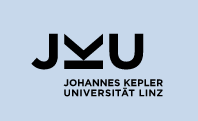
|

|
Gödel's incompleteness theorems are two theorems of mathematical logic that establish inherent limitations of all but the most trivial axiomatic systems for mathematics. The theorems, proven by Kurt Gödel in 1931, are important both in mathematical logic and in the philosophy of mathematics. The two results are widely interpreted as showing that Hilbert's program to find a complete and consistent set of axioms for all of mathematics is impossible, thus giving a negative answer to Hilbert's second problem.
The first incompleteness theorem states that no consistent system of axioms whose theorems can be listed by an "effective procedure" (essentially, a computer program) is capable of proving all facts about the natural numbers. For any such system, there will always be statements about the natural numbers that are true, but that are unprovable within the system. The second incompleteness theorem shows that if such a system is also capable of proving certain basic facts about the natural numbers, then one particular arithmetic truth the system cannot prove is the consistency of the system itself.
This course is intended for students of mathematics, informatics or business informatics who are interested on the theoretical foundations of computer science. There is no particular prerequisite for the course.
Summer Semester 2020.
Please register for the course via the KUSSS system.
Maintained by Nikolaj Popov